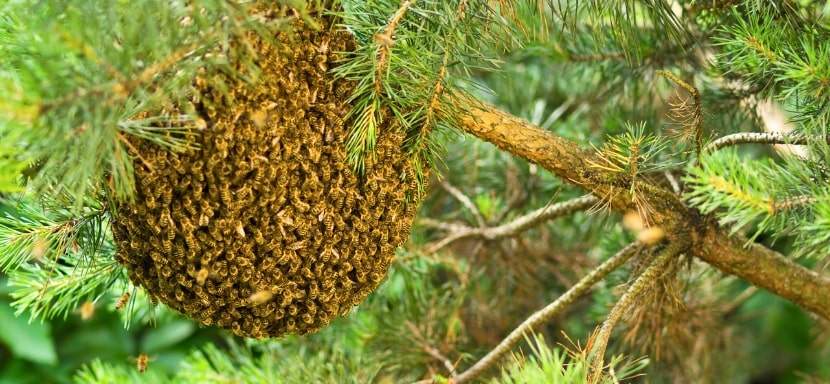How to Survive a Skunk Spray

Getting sprayed by a skunk is a smelly situation that no one wants to find themselves in. However, if you do end up as a target of this defensive mechanism, knowing how to handle the aftermath can make a huge difference.
Let’s explore some practical steps and advice on surviving a skunk spray and getting rid of that persistent odor.
Key Takeaways
- Act Quickly: Stay calm, avoid rubbing, and move to a ventilated area to minimize the spread of skunk odor.
- Neutralize Odor: To remove the skunk spray, use a baking soda, hydrogen peroxide, and dish soap mixture or commercial products.
- Prevent Encounters: Secure garbage cans, use repellents, and seal entry points to keep skunks away.
Understanding the Skunk Spray
What is Skunk Spray?
Skunk spray is a defensive secretion produced by the anal glands of skunks. It contains sulfur-based compounds called thiols, responsible for the pungent odor.
Why Do Skunks Spray?
Skunks use their spray as a defense mechanism when they feel threatened. The spray can cause temporary blindness and has a strong, unpleasant odor that deters predators.
How Far Can Skunks Spray?
A skunk can spray accurately up to 10 feet and reach as far as 15 feet, making it a highly effective deterrent.
10 Quick Tips on How to Survive a Skunk Spray
Surviving a skunk spray requires quick thinking and effective solutions. Here are ten practical tips to help you neutralize the odor and recover from the unpleasant experience.
- Stay calm and composed to handle the situation efficiently.
- Move to a well-ventilated area to reduce the intensity of the smell.
- Avoid rubbing the sprayed area to prevent the odor from spreading further.
- Combine hydrogen peroxide, baking soda, and dish soap for an effective home remedy.
- Use a mixture of vinegar and water to neutralize the skunk odor.
- Bathe your pet with hydrogen peroxide or a commercial skunk odor remover.
- Open windows and doors to allow fresh air to circulate and dissipate the smell.
- Soak washable items in vinegar and water before laundering them.
- Use a bleach and water solution to clean floors and walls affected by the spray.
- Secure your property, use skunk repellents, and seal entry points to deter skunks.
Immediate Actions to Take
Stay Calm and Assess the Situation
If you or your pet gets sprayed, the first thing to do is stay calm. Panicking won’t help and can make the situation worse.
Avoid Rubbing the Spray
Rubbing the sprayed area can cause the smell to spread and penetrate deeper into the skin or fabric. Instead, take immediate steps to neutralize the odor.
Get to a Well-Ventilated Area
Move to an open space where the air circulates freely. This will help dissipate the odor and make it easier for you to breathe.
Did You Know?
Skunks can control the direction of their spray with impressive accuracy by adjusting their body posture and even performing handstands. This ensures they hit their target precisely, often up to 10 feet away!
Neutralizing the Odor
Home Remedies
Baking Soda and Hydrogen Peroxide Solution
One of the most effective home remedies is a mixture of baking soda, hydrogen peroxide, and dish soap. Here’s how to make it:
- Ingredients:
- 1 quart of 3% hydrogen peroxide
- 1/4 cup of baking soda
- 1-2 teaspoons of liquid dish soap
- Instructions:
- Mix the ingredients in a bowl (do not store this mixture in a closed container as it can explode).
- Apply the mixture to the affected area, avoiding the eyes and mouth.
- Let it sit for about 5-10 minutes.
- Rinse thoroughly with warm water.
Vinegar Solution
Vinegar is another common household item that can help neutralize skunk odor.
- Ingredients:
- 1 part vinegar
- 1 part water
- Instructions:
- Mix the vinegar and water in a bowl.
- Apply the solution to the affected area.
- Let it sit for 5-10 minutes.
- Rinse thoroughly with warm water.
Commercial Skunk Odor Removers
Several commercial products are designed specifically to neutralize skunk odor. They can be found at pet stores or online. For the best results, follow the product instructions.
Cleaning Your Pet
Bathing Your Pet
If your pet gets sprayed, follow these steps to clean them:
- Wear Gloves: Protect your hands from the odor and any potential irritation.
- Apply the Skunk Odor Remover: Use the homemade mixture or a commercial product.
- Rinse Thoroughly: Rinse all the products out of their fur.
- Repeat if Necessary: You may need to repeat the process several times to remove the odor entirely.
Professional Grooming
If you can’t altogether remove the odor, consider taking your pet to a professional groomer who has experience with skunk spray.
Dealing with Skunk Odor in Your Home
Ventilate the Area
Open all windows and doors to allow fresh air to circulate. This helps in reducing the lingering odor.
Clean Affected Fabrics
- Washable Items: Use vinegar and water to soak the affected fabrics before putting them in the washing machine.
- Non-Washable Items: Sprinkle baking soda on the fabric and let it sit for a few hours before vacuuming.
Clean Hard Surfaces
Use bleach and water (1 part bleach to 9 parts water) for hard surfaces like floors and walls to clean the area.
Preventing Future Skunk Encounters
Secure Your Property
Ensure your garbage cans are sealed tightly, and remove any food sources from your yard. This will discourage skunks from coming near your home.
Use Skunk Repellents
Various skunk repellents, natural or commercial, are available to keep skunks away from your property.
Close-Off Entry Points
Seal holes or gaps around your home where skunks could enter, such as under decks or sheds.
FAQs
What should I do if I get sprayed directly in the eyes?
Rinse your eyes immediately with water and seek medical attention if necessary. Skunk spray can cause temporary blindness and severe irritation.
Can skunk spray harm my pet?
While skunk spray is not toxic, it can cause irritation and discomfort for your pet. It is important to clean them thoroughly and monitor for any signs of distress.
How long does the skunk odor last?
If not treated properly, skunk odor can last for several days to weeks. Effective remedies can help neutralize the smell more quickly.
Is it safe to use hydrogen peroxide on my pet?
Yes, hydrogen peroxide is generally safe for pets in the recommended concentration. However, avoid getting it in their eyes or mouth.
Can skunks spray more than once?
Skunks can spray multiple times if they feel threatened, but they have a limited supply and need time to replenish it.
Do skunks spray only when they are threatened?
Skunks primarily use their spray as a defense mechanism when they feel threatened or cornered.
Conclusion: How to Survive a Skunk Spray
Surviving a skunk spray can be challenging, but with the proper knowledge and preparation, you can handle it effectively.
Following the steps mentioned above can neutralize the odor and prevent future encounters. Staying calm and acting quickly are vital to overcoming this smelly situation.
Uncommon Facts About Skunks Spraying
Here are a few surprising and lesser-known facts about skunks and their unique defense mechanism.
- Accurate Aim: Skunks can precisely aim their spray by adjusting their body posture, often hitting targets up to 10 feet away.
- Handstand Technique: Some skunks perform handstands to aim their spray more effectively, especially when threatened.
- Limited Supply: Skunks have limited spray and need several days to replenish their supply after using it.
- Warning Signs: Skunks often give warning signs such as stomping their feet and raising their tails before spraying.
- Sulfur-Based Compounds: The pungent odor of skunk spray comes from sulfur-based compounds called thiols, also found in garlic and onions.
- Temporary Blindness: Skunk spray can cause temporary blindness and severe irritation if it gets into the eyes of predators or humans.
- Effective Deterrent: The pungent odor of skunk spray can linger for days to weeks, making it a highly effective deterrent against predators.
- Non-Toxic but Irritating: While skunk spray is not toxic, it can cause nausea and irritation to the skin and respiratory system.
- Natural Pest Control: Skunks use their spray to defend and deter insects and other tiny pests from their dens.
- Unique Scent Signature: Each skunk’s spray has a slightly different composition, giving it a unique scent signature that other skunks can recognize.
More Wild Frontier Scenarios
How to Survive a Mountain Lion Attack
Learn how to survive a mountain lion attack with practical steps to protect yourself and stay safe in. Surviving a…
How to Survive a Raccoon Attack
It’s a quiet evening, the moon is out, and maybe you’re taking out the trash or just enjoying a night…
How to Survive a Wild Boar Attack
Encountering a wild boar is like meeting your ex at a grocery store—unexpected, unnerving, and, in most…
How to Survive a Swarm of Bees
Surviving a bee swarm might sound like a scene out of a movie, but it’s a real concern for those who…
How to Survive a Bear Attack
Surviving a bear attack involves more than just reacting during an encounter; it requires understanding bear…
Recent Survival Posts
How to Survive a Layoff
Layoffs feel personal—even when they’re not. One day, you’re responding to Slack messages and forwarding…
How to Survive a Drug Test
I never imagined I’d be so emotionally invested in a paper cup. But there I was, standing under the fluorescent…
How to Survive an Interrogation
If you’ve ever been caught in the crosshairs of an overly enthusiastic mall cop or stared down by someone…
How to Survive a Nightclub Shooting
Nightclubs pulse with life—lights flashing, music pounding, bodies packed tight on the dance floor. It’s a place to…
How to Survive a Bachelor Party
A bachelor party is a delicate mix of celebration, chaos, and questionable decision-making, wrapped…
More Wild Frontier Survival Scenarios

How to Survive a Raccoon Attack
It’s a quiet evening, the moon is out, and maybe you're taking out the trash or enjoying a night on your porch. And suddenly, out of the shadows, bam! There it is—those black-ringed eyes glowing at you like some creature from a raccoon version of “The Shining.” If...

How to Survive a Wild Boar Attack
Encountering a wild boar is like meeting your ex at a grocery store—unexpected, unnerving, and, in most cases, best avoided. Yet, wild boars aren't interested in your baggage or drama; they're just trying to mind their own business—unless they think you're a threat....

How to Survive a Swarm of Bees
Surviving a bee swarm might sound like a scene out of a movie, but it's a genuine concern for those who love the outdoors. Imagine this: you're hiking on a beautiful sunny day, enjoying the tranquility of nature, when suddenly you hear a low buzzing sound that...

How to Survive a Bear Attack
Bear Attack Survival Tips and Strategies Though rare, bear attacks can occur because bears remember food locations for years and may silently track humans to assess threats or follow scents. Surviving a bear attack involves more than just reacting during an encounter;...

How to Survive a Cicada Infestation
Cicada Infestation Survival Tips and Strategies Cicadas have fascinated humans for millennia. These insects are known for their distinctive life cycles, particularly the periodical cicadas that emerge in massive numbers every 13 or 17 years. The earliest recorded...
More Survival Scenarios

How to Survive a Layoff
When the Floor Falls Out: The Reality of a Layoff Layoffs feel personal—even when they're not. One day, you're responding to Slack messages and forwarding emails. Next, you're staring at your monitor as it logs you out... for good. Whether it's a restructuring, a...

How to Survive a Drug Test
The Cup, The Room, The Truth I never imagined I’d be so emotionally invested in a paper cup. But there I was, standing under the fluorescent hum of a strip-mall clinic, trying to recall the last time I ate a poppy seed bagel. That’s the thing about drug tests—they...

How to Survive an Interrogation
If you've ever been caught in the crosshairs of an overly enthusiastic mall cop or stared down by someone in a uniform with a clipboard and a glare, you’ve felt it — the chilly fingers of interrogation anxiety. And while most of us imagine interrogation scenes as...

How to Survive a Nightclub Shooting
Nightclubs pulse with life—lights flashing, music pounding, bodies packed tight on the dance floor. It’s a place to escape, feel the rhythm, and lose yourself in the crowd. But that same energy can turn deadly in seconds, transforming a night of fun into one of the...

How to Survive a Bachelor Party
A bachelor party is a delicate mix of celebration, chaos, and questionable decision-making, wrapped in the noble intention of sending the groom off into married life with a night he’ll (hopefully) remember. It’s a ritual as old as time—well, as old as men deciding...

How to Survive Your First Time at the Gym
Walking into a gym for the first time can feel like stepping into an alien world. The machines hum with purpose, the regulars move confidently, and you’re left standing there, clutching your water bottle, wondering whether you’re in the right place—or on the right...

How to Survive a Worldwide Communications Breakdown
Imagine waking up to silence. Your phone doesn’t buzz, your email won’t load, and even your local radio station crackles with static. A worldwide communications breakdown has hit. What next? For many, this doomsday scenario may sound like the opening lines of a...

How to Survive a Flash Flood While Driving
Surviving a flash flood while driving requires quick thinking, calmness, and a solid plan to ensure your safety. Preparation can make all the difference between a close call and a catastrophe in emergencies like this. This guide provides practical advice to protect...

How to Build an Emergency Kit
Emergencies don’t knock politely at the door. They barge in, uninvited, like a distant relative with a penchant for drama, turning your world upside down without warning. Whether it’s a power outage, a natural disaster, or an unexpected evacuation, the key to staying...

How to Protect Yourself From Insects in the Wild
There’s nothing like being out in the wild—birdsong echoing through the trees, the fresh scent of earth, and a deep sense of peace that makes you think, “Ah, this is what life is about.” But then comes the buzzing. Mosquitoes, ticks, and flies swoop in like uninvited...
